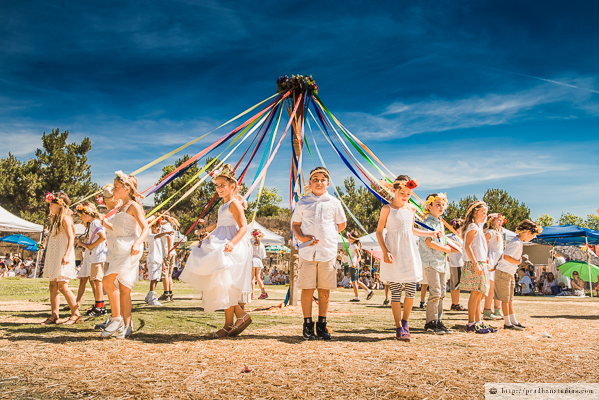Journey School reaffirms deep ecological values as we explore nature’s amazing classroom to introduce children to the interconnections within nature, environmental stewardship and sound environmental practices. We emphasize reverence for the earth, attunement to its rhythms and awareness of the complexity and diversity of all life forms on it. Our integrated ecoliteracy curriculum intensives equip students with environmental knowledge and the tools to be innovative thinkers and future leaders.
Kindergarten and First Grade: In the early years children foster environmental awareness by experiencing a sense of wonder and awe in Nature. Children are led on hikes, enjoy preparing organic snacks, play in natural playscapes and create natural crafts. They develop a kinship with the earth and an appreciation for all living things.
Second Grade: Students have hands-on experience and observation of the life cycles of the bee, butterfly, worm and seed. They enjoy nature hikes, field trips, and learn about ways to reduce, reuse and recycle.
Third Grade: Students focus in on farming, cooking and building. They learn about soil building, worm composting, gardening, harvesting and recycling.
Fourth Grade: Students learn about native american culture and ancestral survival skills. They learn how to identify and use native edible, useful and medicinal plants, tool making, creek bed walk, learn to use fire tools and bow and arrow making. The fourth grade adopts the native garden as their living classroom.
As the children reach fifth through eighth grades, the education shifts focus from an emphasis on observation, wonder, discovery and reverence to observation, question/hypothesis, inductive/deductive thought, and a capacity to move between a variety of mediums in expressing knowledge and what has been discovered.
Fifth Grade: Water Shed, Water conservation and Rainwater Harvesting: Students study California’s watershed and learn about water conservation and ways to reduce and reuse water through rainwater harvesting. Students measure and calculate annual rooftop rainwater catchment, determine best way to maximize water use on campus. The students install a rainwater harvesting demonstration site and learn ways to protect the ocean. Additionally, they plant seeds in the crop garden.
Sixth Grade: Students embrace the campus composting program and help to inspire students recycle on campus. They conduct school-wide energy audits and give recommendations to school administration on ways to reduce energy.
Seventh Grade: Students learn about sustainability and the principles of permaculture. They study their campus and make recommendations for a sustainable design. The students also learn how to lead eco-tours of the campus. The students begin to incorporate new media literacy tools for telling their eco-story.
Eighth Grade: This is the year of embracing leadership, innovation and critical thinking. Students are encouraged to implement needed environmental campus and community-wide practices and programs. They continue to lead campus eco-tours and use new media literacy tools to tell eco-stories.
Learn more about Journey School’s Ecoliteracy Program here.





